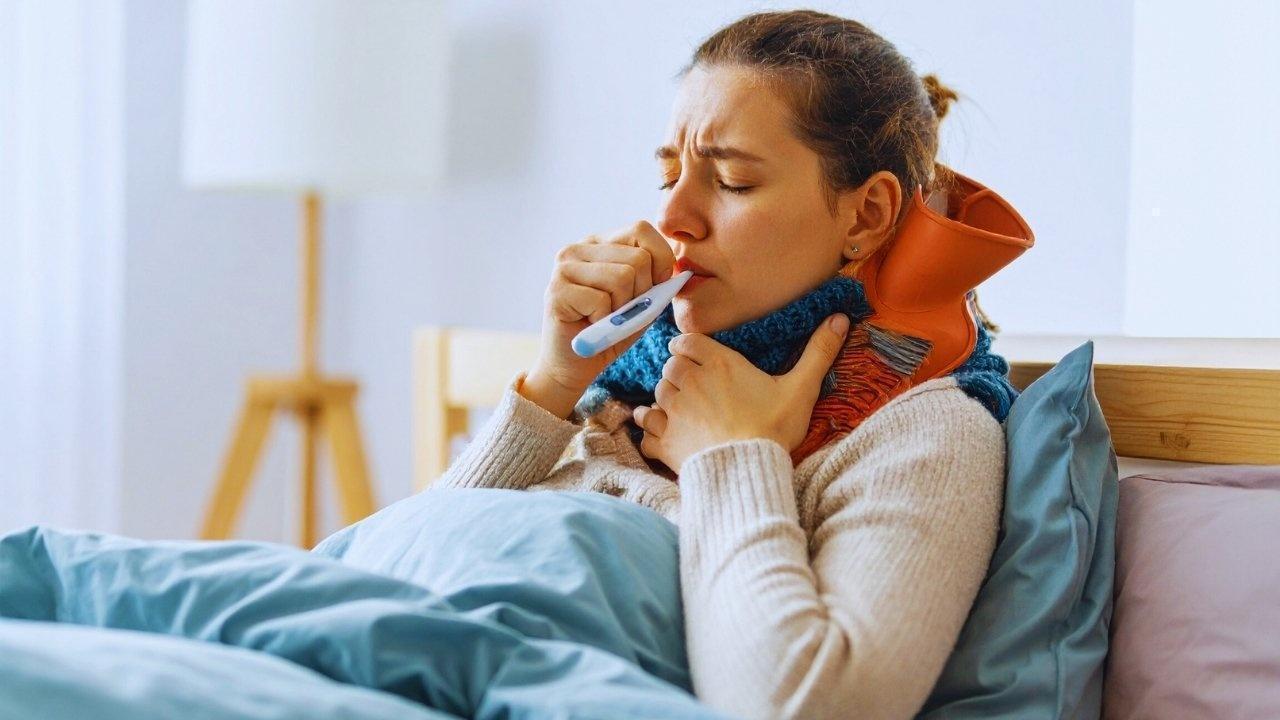
Post by : Anees Nasser
Colds and coughs rank among the most prevalent health complaints. Factors like changing climates, dust, pollution, prolonged air conditioning, late nights, and viruses lead to symptoms such as throat irritation, congestion, sneezing, and fatigue. Often, these symptoms resolve on their own with rest, hydration, and basic home care. However, when coughs persist or colds escalate, individuals may question whether to stick with home remedies or seek medical advice.
Recognizing the significance of one’s symptoms is crucial. Not every sneeze warrants a medication, and high fevers shouldn't be overlooked. The goal isn't to instigate fear—rather, to cultivate understanding. This practical guide aims to clarify when home care is sufficient and when a professional evaluation becomes necessary.
Viral infections primarily cause coughs and colds. The immune system battles these viruses naturally, meaning recovery is significantly influenced by rest, fluid intake, and supportive care instead of immediate medication.
Coughing: Clears the airways
Sneezing: Eliminates irritants
Runny Nose: Flushes out viruses and allergens
Sore Throat: Results from inflammation
Mild Fever: Sign of immune response
These bodily responses reflect defense mechanisms, indicating that sometimes, patience and basic care are all that's needed.
Identifying your type of cough is crucial in determining the appropriate care approach.
Irritating tickle, minimal to no mucus
Commonly brought on by viral infections, dust, smoke, aridity, or allergies
Produces mucus or phlegm
Indicates airway clearance
May occur during recovery or due to congestion
Triggered by allergens like dust, pollen, or pets
Often accompanied by itchy throat, sneezing, and watery eyes
Can persist for 1–3 weeks post-recovery
The airways may remain sensitive after a viral episode
Identifying your cough type aids in effective care.
| Symptom | Typical Duration |
|---|---|
| Sore Throat | 1–3 days |
| Blocked Nose & Sneezing | 2–4 days |
| Cough | 1–3 weeks (may vary) |
| Fatigue | Several days |
A slow recovery is often natural, as the immune system requires time to heal.
Mild symptoms often permit effective home care. Consider these supportive practices.
Warm beverages such as water, soups, broths, and herbal teas are beneficial for soothing the throat, loosening mucus, and maintaining hydration.
Steam can alleviate sinus congestion, while warm showers provide body relaxation and relief from chest tightness.
Rest is vital for healing, as it supports the immune system; overexertion may prolong recovery.
This is effective for calming throat irritation and discomfort.
Mixing warm water with honey provides throat relief. Adding black pepper or ginger juice enhances the comforting effect.
(Not advisable for children under one year.)
Using ingredients like tulsi, ginger, turmeric milk, and pepper can provide some relief. These are not miracle cures but help comfort the body.
Dry air can exacerbate a cough. Keeping the air moist using:
Humidifiers
A bowl of water near your bed
Damp towels on a chair near a fan
is particularly effective during winter and in air-conditioned spaces.
Chilled drinks that cause irritation
Excessive sugar
Smoking and tobacco exposure
Exposure to dust
Strong fragrances
Heavy fried foods if appetite is lacking
Making thoughtful choices can facilitate quicker healing.
Minor symptoms may not require immediate medical care. However, immediately contact a doctor if any of these alarming signs appear:
Fever lasting over 2–3 days
Very high fever or recurrent spikes
Breathing challenges or wheezing
Chest discomfort or tightness
Bluish lips or nails
Severe throat pain that hinders swallowing
Prolonged cough lasting over 3 weeks
Consistent vomiting
Extreme lethargy or confusion
Very young infants showing symptoms
Worsening of any chronic conditions (like asthma, heart disease, diabetes)
These signals indicate that professional assessment is necessary, rather than relying solely on home remedial methods.
Antibiotics are ineffective against viruses and are reserved for bacterial infections; unnecessary use can disrupt gut health and weaken future immunity.
Even if the cold subsides but a cough persists, it doesn’t necessarily indicate an infection, as inflammation may take time to resolve.
Medication should only be used when prescribed by a healthcare professional.
Consulting a doctor is crucial when symptoms impact:
Infants and toddlers
Senior citizens
Individuals with low immunity
People with respiratory issues
Patients with chronic conditions
Addressing issues early can help prevent complications.
Morning
Warm water + Light stretching + Gentle steam
Day
Stay hydrated
Light meals such as khichdi, soup, dal rice, & oats
Incorporate rest periods
Evening
Warm shower
Humidifier or steam
Light walking, if possible
Night
Sleep early
Sip warm water
Use an elevated pillow for easier breathing
Small daily habits can have significant effects.
People often hesitate to seek help thinking:
“It’s just a cold”
“It’ll disappear on its own”
“I don’t want to inconvenience anyone”
Recognizing early signs can prevent unnecessary stress later. If a symptom feels atypical, intensified, or persistent, trust your instincts.
Awareness combined with prompt action leads to better health outcomes.
Ensure children and seniors receive ongoing hydration and comfort.
Working adults should prioritize rest and recovery.
Exercise caution against self-medicating; each individual reacts differently.
Healing isn’t a sprint—allow the body the time it requires.
Coughs and colds are unavoidable parts of life—they may be bothersome, yet they pass. Most cases require patience, nurturing, and rest rather than panic or excessive medication. However, vigilance regarding warning signs guarantees safety and peace of mind.
Your body communicates essential signals.
Stay attentive early, act wisely, and grant yourself the time to recover.
Comfort is care.
Rest is medicine.
Awareness is strength.
Be kind to yourself—healing thrives in nurturing.
This article offers general wellness tips and is not a substitute for professional medical diagnosis or treatment. Consult a qualified medical professional if symptoms worsen, persist, or raise concerns.










Roberto Martinez Critiques Harshness of Ronaldo's Red Card in Ireland Match
Portugal's coach, Roberto Martinez, defends Ronaldo after his first red card impacts a 2-0 loss to I

Luis Rubiales Egged at His Book Launch in Madrid
Luis Rubiales faced an egg-throwing incident by his uncle during his book launch, further complicati

Kai Trump Struggles in LPGA Debut, Reflects on Experience
Kai Trump finished her LPGA debut with a score of 83, learning valuable lessons amid significant att

Kansas State Edges Past Cal 99-96 in Thrilling Encounter
Kansas State narrowly defeats Cal 99-96, with Haggerty's standout performance crucial to the Wildcat

Suns Dominate Pacers with Stellar Performance from Booker
The Suns secure a decisive victory over the Pacers, with Devin Booker showcasing his talent and exte

Injury-Stricken Clippers Battle Mavericks in NBA Cup Clash
Both the Clippers and Mavericks face injury struggles as they meet in an NBA Cup showdown, eager to